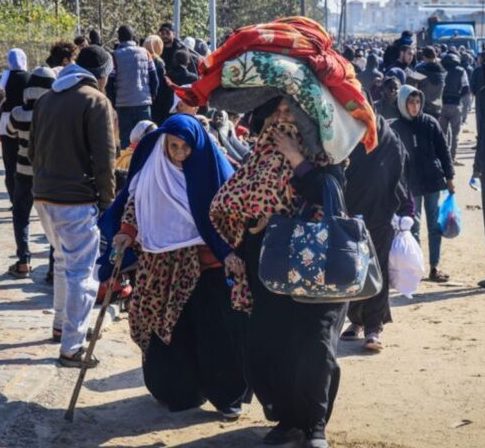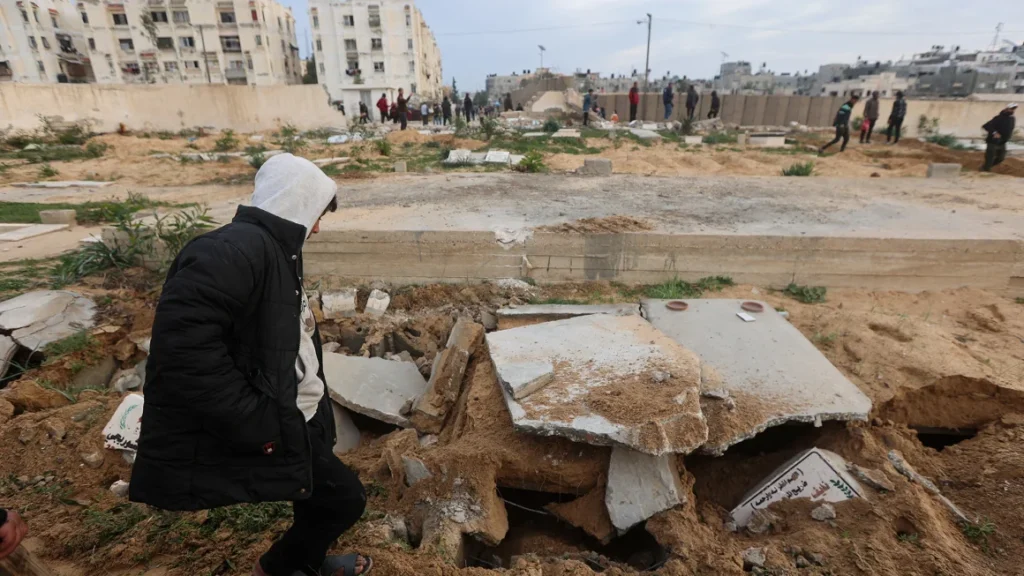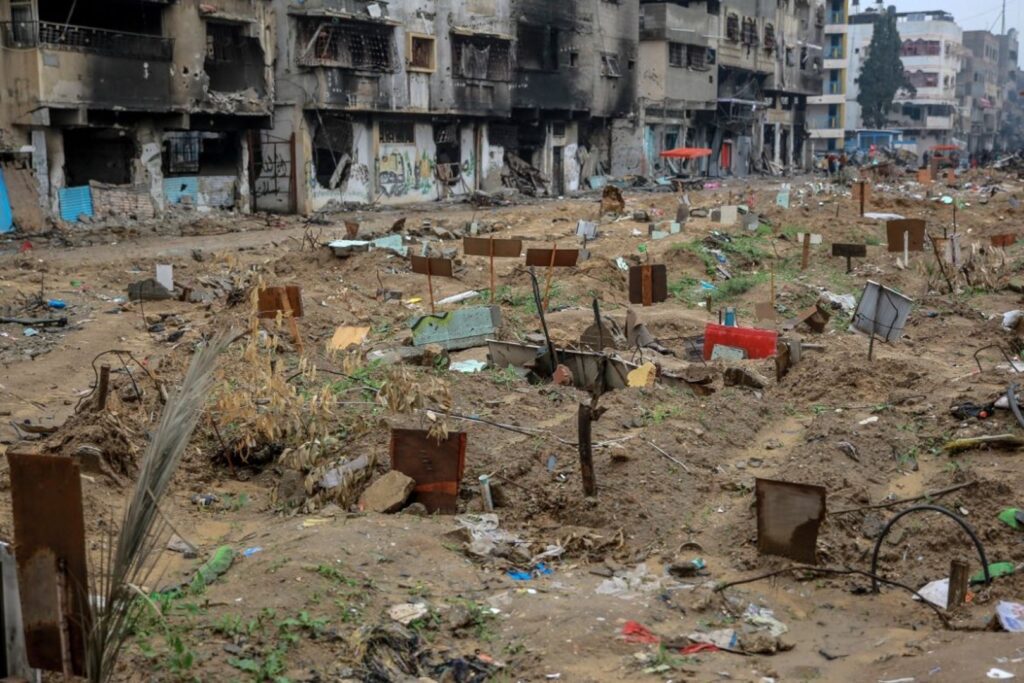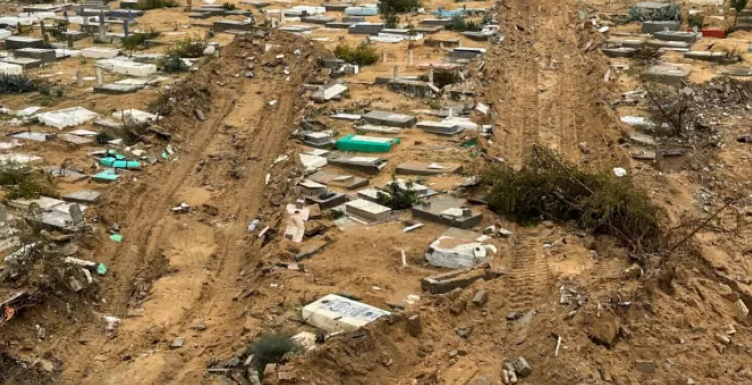also carried in Counterpunch Feb 7, 2024 by Barbara Nimri Aziz

It’s hard to imagine this happening in modern times. Even an assault on a single grave is a criminal act in a civilized (sic) country. The very idea is reviled everywhere. So what about Israel’s ongoing assaults on Palestinian cemeteries across Gaza? The terror has received passing reference, first in a fleeting video on Twitter, then in an international news outlet. For a day. That CNN report exposed how widespread was Israel’s upturning and ravaging graves. Yet, while it may have generated some shock, outrage was surprisingly muted. Moving images – red-stained shrouds clutched by sobbing boys; rows of silent, bent mothers: wandering, stunned orphans: all compete for our rationed sympathy. Dying and grieving display feelings, if not hope. They’re more compelling. Long-dead bodies, their shrouds obscenely shredded, and bones scattered irreverently in pits are best left to archeologists. We wring our hands in moral indignation about genocide and starvation while we swallow our shame watching whole neighborhoods fleeing by foot to they-not-know where.

Is it not enough to order families – old, young, infirmed, pregnant – from their homes, driving them into a road carrying a handful of belongings? Is it not enough to destroy hospitals so that the screaming wounded, often without family nearby, die unnecessarily in corridors or endure amputations without anesthesia? Is it not enough to assassinate anyone daring to disobey orders to shelter among ruins of a bombed hospital or school, or among the raw rubble of their home – any home? Is it not enough to assassinate journalists who dare report realities from the field, to strike United Nations staff whose mission is caring for the needy? Is it not enough to delay essential food delivery to hundreds of thousands? Is it not enough to roundup men, strip them and whisk them away for torture and execution? Is it not enough to level two major Gaza universities, completely obliterating them? Is it not enough to shame decent Jews across the world – orthodox, reformed or non-observant – who watch as this abhorrence is carried out in the name of their Jewish state? Apparently not.
We now have marauding Israeli forces going after the dead, even the dead! It’s surely impossible for people of conscience to overlook this, as grievous as watching Palestinians turned out of their homes, their contents tossed hither and thither as they are bulldozed, their fields of carefully nurtured olive trees uprooted. Bones and shrouded remains of recently deceased are left exposed, then run over by Israeli tanks and bulldozers. Cement vaults and hastily dug graves of newly buried are treated equally unfeelingly. (Although given what we are seeing day-to-day, Israelis may actually delight in these actions.) Whatever the pretense for this final assault on a people, these misdeeds expose a distinct degree of incivility. These violations are unarguably intended to deepen the pain of those who dare to survive this calamity. Such crimes are bound to heighten hostility towards their perpetrators.

Israelis don’t need a journalist or theologian to remind them of the sanctity of burial sites. Their behavior is especially poignant given how, in 2005, with the handover of Jewish settlements in Gaza to Palestinian refugees, departing settlers insisted that their loved ones be unearthed for transport to Israel with them. That’s a sign of the care Jews give their ancestors. Muslims and Christians are hardly different—cemeteries are for us more than a resting place of the dead. They mark a family history; they represent love; they signify respect for one’s grandparents, for all ancestors. Israeli sociologists and policy makers and those operating those bulldozers know how, after the annual Eid Al-Fitr, every Muslim family revisit graves of their ancestors. That day is a cherished, cheerful time when children and adults gather among the graves to enjoy a meal, chatting and playing near the spirits of protected loved ones. Christian neighbors join Muslim families at cemeteries on that hallowed Eid.

I recall a heartbreaking sight in a video clip from Iraq almost twenty years ago. Decimated by a decade of embargo, the invasion and sedition aggravated by occupying US troops, internal (sectarian) strife erupted, causing widespread terror. An elderly Iraqi man looking into the camera of a journalist wept agonizingly: “Look, look at what we have become!” I wonder: might some Jewish people staring at those graves smashed and desecrated so savagely, feel similarly?

